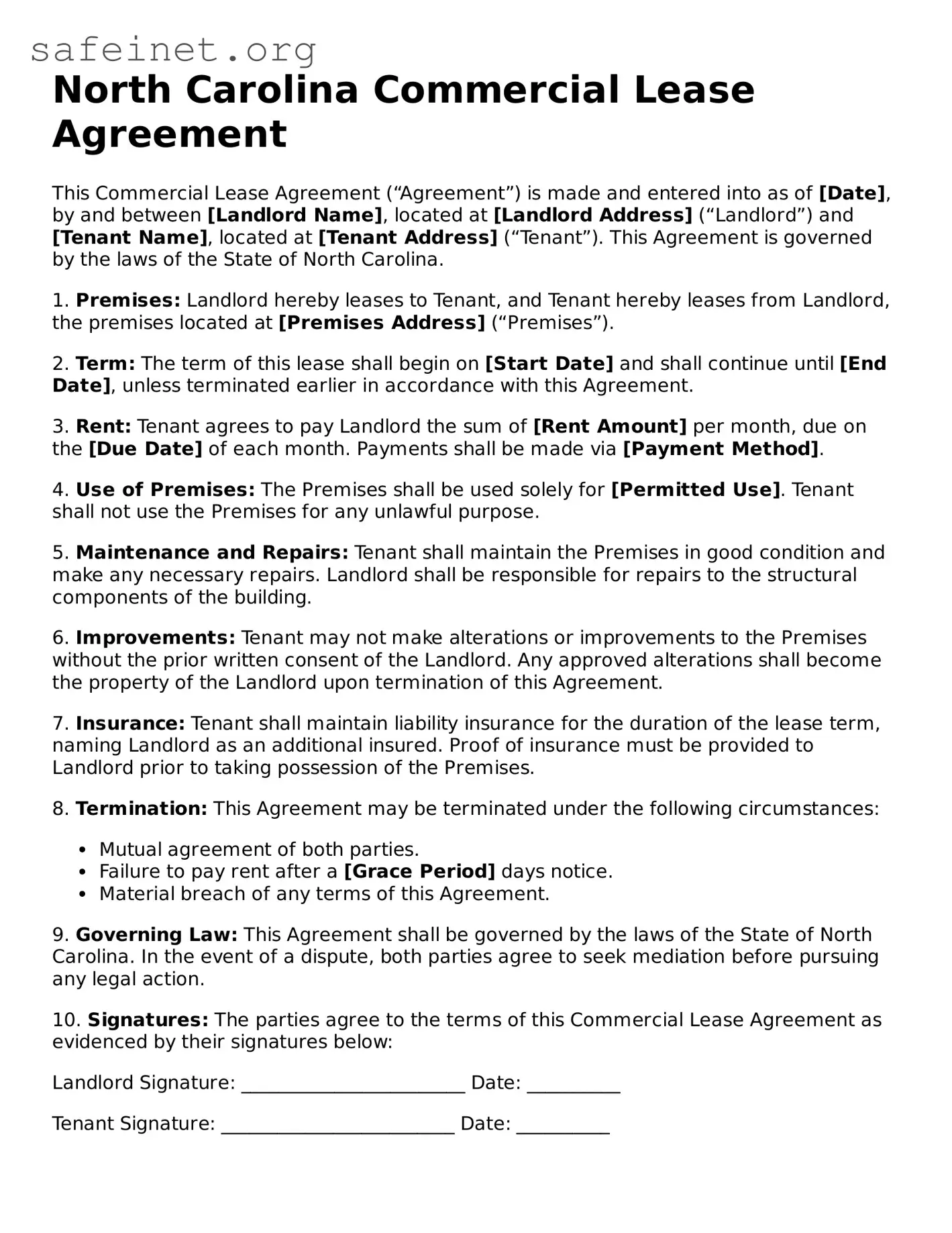North Carolina Commercial Lease Agreement
This Commercial Lease Agreement (“Agreement”) is made and entered into as of [Date], by and between [Landlord Name], located at [Landlord Address] (“Landlord”) and [Tenant Name], located at [Tenant Address] (“Tenant”). This Agreement is governed by the laws of the State of North Carolina.
1. Premises: Landlord hereby leases to Tenant, and Tenant hereby leases from Landlord, the premises located at [Premises Address] (“Premises”).
2. Term: The term of this lease shall begin on [Start Date] and shall continue until [End Date], unless terminated earlier in accordance with this Agreement.
3. Rent: Tenant agrees to pay Landlord the sum of [Rent Amount] per month, due on the [Due Date] of each month. Payments shall be made via [Payment Method].
4. Use of Premises: The Premises shall be used solely for [Permitted Use]. Tenant shall not use the Premises for any unlawful purpose.
5. Maintenance and Repairs: Tenant shall maintain the Premises in good condition and make any necessary repairs. Landlord shall be responsible for repairs to the structural components of the building.
6. Improvements: Tenant may not make alterations or improvements to the Premises without the prior written consent of the Landlord. Any approved alterations shall become the property of the Landlord upon termination of this Agreement.
7. Insurance: Tenant shall maintain liability insurance for the duration of the lease term, naming Landlord as an additional insured. Proof of insurance must be provided to Landlord prior to taking possession of the Premises.
8. Termination: This Agreement may be terminated under the following circumstances:
- Mutual agreement of both parties.
- Failure to pay rent after a [Grace Period] days notice.
- Material breach of any terms of this Agreement.
9. Governing Law: This Agreement shall be governed by the laws of the State of North Carolina. In the event of a dispute, both parties agree to seek mediation before pursuing any legal action.
10. Signatures: The parties agree to the terms of this Commercial Lease Agreement as evidenced by their signatures below:
Landlord Signature: ________________________ Date: __________
Tenant Signature: _________________________ Date: __________
